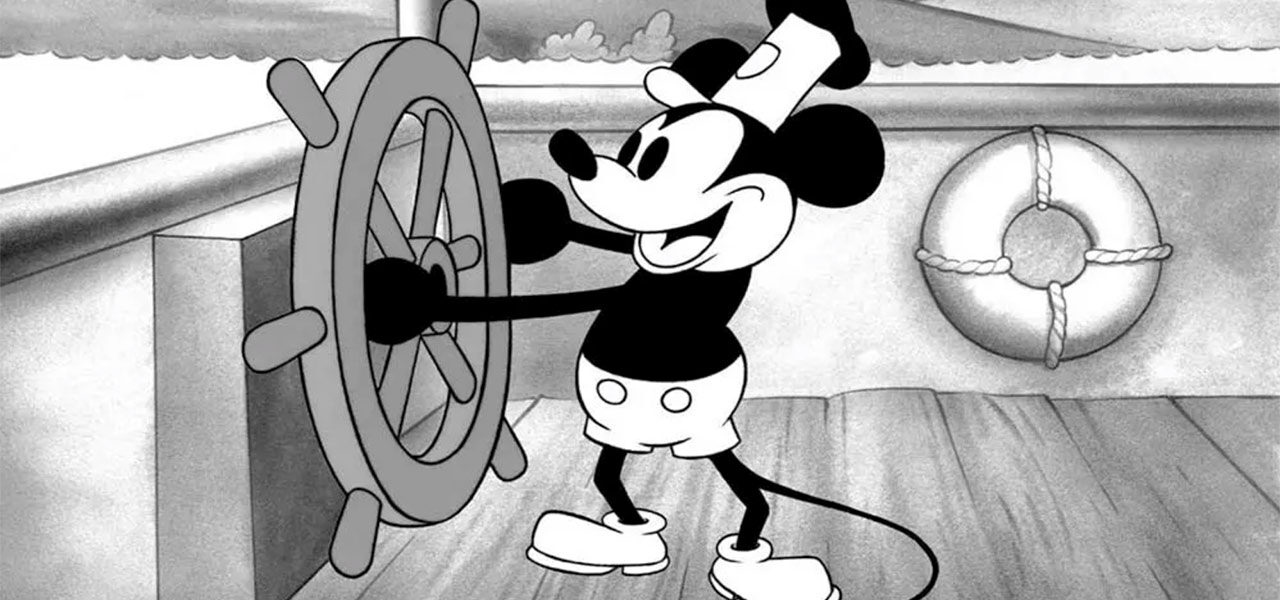M-I-C-K-E-Y will soon belong to you and me. With several asterisks, qualifications, and caveats, Mickey Mouse in his earliest form will be the leader of the band of characters, films, and books that will become public domain as the year turns to 2024.
In a moment many close observers thought might never come, at least one version of the quintessential piece of intellectual property and perhaps the most iconic character in American pop culture will be free from Disney’s copyright as his first screen release, the 1928 short Steamboat Willie, featuring both Mickey and Minnie Mouse, becomes available for public use, the AP reports.
“This is it. This is Mickey Mouse. This is exciting because it’s kind of symbolic,” says Jennifer Jenkins, a professor of law and director of Duke’s Center for the Study of Public Domain, who writes an annual Jan. 1 column for “Public Domain Day.”
“I kind of feel like the pipe on the steamboat, like expelling smoke. It’s so exciting.” US law allows a copyright to be held for 95 years after Congress expanded it several times during Mickey’s life.
Current artists and creators will be able to make use of Mickey, but with major limits. It is only the more mischievous, rat-like, non-speaking boat captain in Steamboat Willie that has become public.
“More modern versions of Mickey will remain unaffected by the expiration of the Steamboat Willie copyright, and Mickey will continue to play a leading role as a global ambassador for the Walt Disney Company in our storytelling, theme park attractions, and merchandise,” Disney said in a statement.
Disney’s statement said it “will work to safeguard against consumer confusion caused by unauthorized uses of Mickey and our other iconic characters.” Steamboat Willie, directed by Walt Disney and his partner Ub Iwerks and among the first cartoons to have sound synced with its visuals, was actually the third cartoon featuring Mickey and Minnie the men made, but the first to be released.
Another famous animal sidekick, Tigger, will join his friend Winnie the Pooh in the public domain as the book in which the bouncing tiger first appeared, The House at Pooh Corner, turns 96. Pooh, probably the most celebrated prior character to become public property, took on that status two years ago when AA Milne’s original Winnie the Pooh entered the public domain, resulting in some truly novel uses, including this years’ horror film Winnie The Pooh: Blood and Honey.
Other properties entering the US public domain are Charlie Chaplin’s film Circus, Virginia Woolf’s novel Orlando, and Eugene O’Neill’s play Long Day’s Journey into Night.


